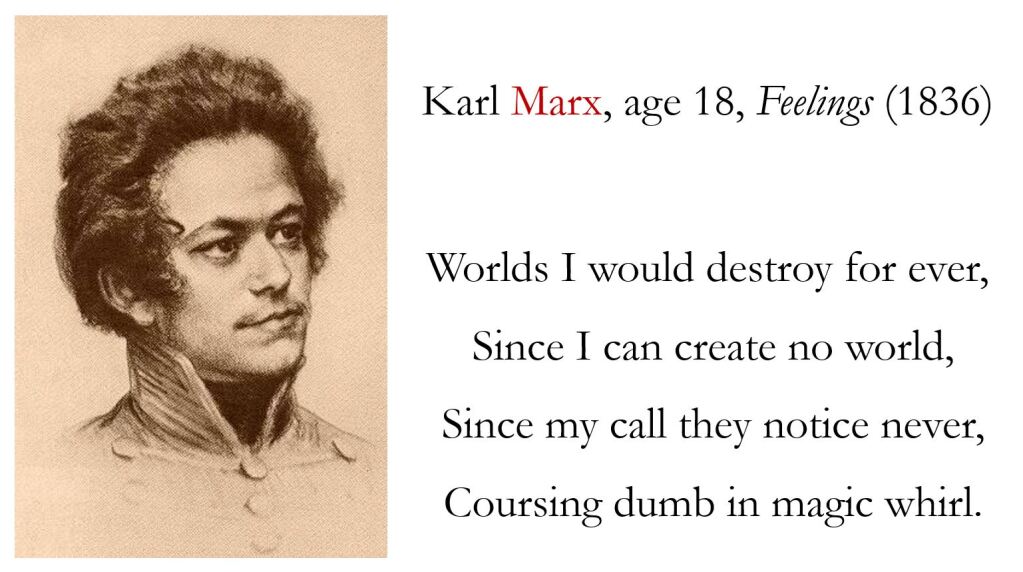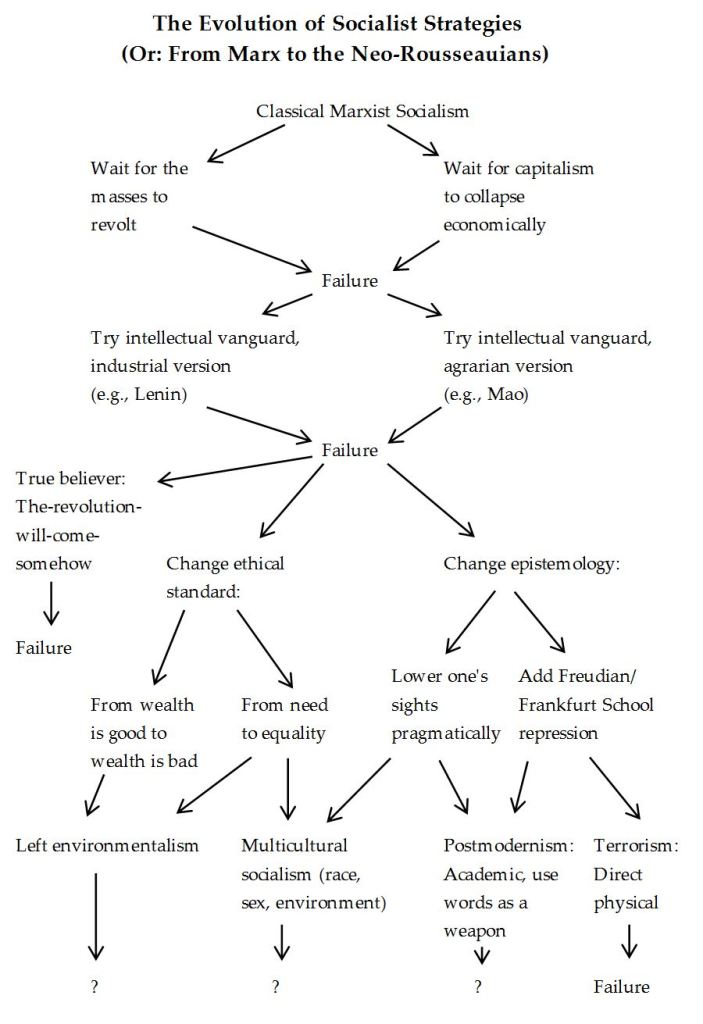On the widespread phenomenon of frustrated and angry young men becoming hateful and destructive: “I was ready to love the whole world, but no one understood me, and I learned to hate” is a line from Mikhail Lermontov’s 1840 novel, A Hero of Our Time.
I’ve frequently wondered, given the timing, how much the young Karl Marx fits this profile. Lermontov (born in 1814) was diagnosing a general psychological phenomenon in his generation while Marx (born in 1818) is a particular case. Young Karl Marx wrote teenage storm-and-stress poetry, such as this, excerpted from Feelings, written when he was 18 years old:

Worlds I would destroy for ever,
Since I can create no world,
Since my call they notice never,
Coursing dumb in magic whirl.
Those expressed feelings of impotence (“I can create no world”) and of being socially alienated (“my call they notice never”) leading to nihilism (“Worlds I would destroy forever”) — how much do they explain not only a personal psychology but a later entire developed philosophy?

Related: Chapter 5 of Explaining Postmodernism, “The Crisis of Socialism” traces the devolution of socialist, especially Marxists and neo-Marxist strategies as they repeatedly fail in theory and practice, raising the question of how much they are theories based on evidence and logic and how much they are expressions of underlying psychologies.

I wonder is resentment is born from lack of responsibility, meaning the world didn’t appreciate Marx’s genius so he grew bitter and resentful. Channeled his formidable energy into attacking the status quo.
I suspect this person was never ready to love the whole world, but deluded himself into thinking he was. Meanwhile, Marx’s “philosophy” strikes me as an elaborate rationale for his own mental illness. His personal behavior toward those around him closely resembles the contempt that he projects as justified by the proletariat against the bourgeoisie. We know that he sponged off of everyone who was better off than he, and attacked other socialists who were more successful than he was, even as he ripped off their ideas without attribution.
Marx and Satan by Richard Wurmbrand …
file:///Users/admin/Downloads/Wurmbrand_Richard_Marx_and_Satan.pdf
“…
At an age when most young men have beautiful dreams of doing good to others and
preparing a career for themselves, the young Marx wrote the following lines in his
poem “Invocation one one in despair” :
So a god has snatched from me my all,
In the curse and rack of destiny.
All his worlds are gone beyond recall.
Nothing but revenge is left to me.
I shall build my throne high overhead,
Cold, tremendous shall its summit be.
For its bulwark – superstitious dread.
For its marshal – blackest agony.
Who looks on it with a healthy eye,
Shall turn back, deathly pale and dumb,
Clutched by blind and chill mortality,
May his happiness prepare its tomb
Marx dreamt about ruining the world created by God. He said in another poem:
Then I will be able to walk triumphantly,
Like a god, through the rains of their kingdom.
Every word of mine is fire and action.
My breast is equal to that of the Creator.
…”
A lack of love for sure.